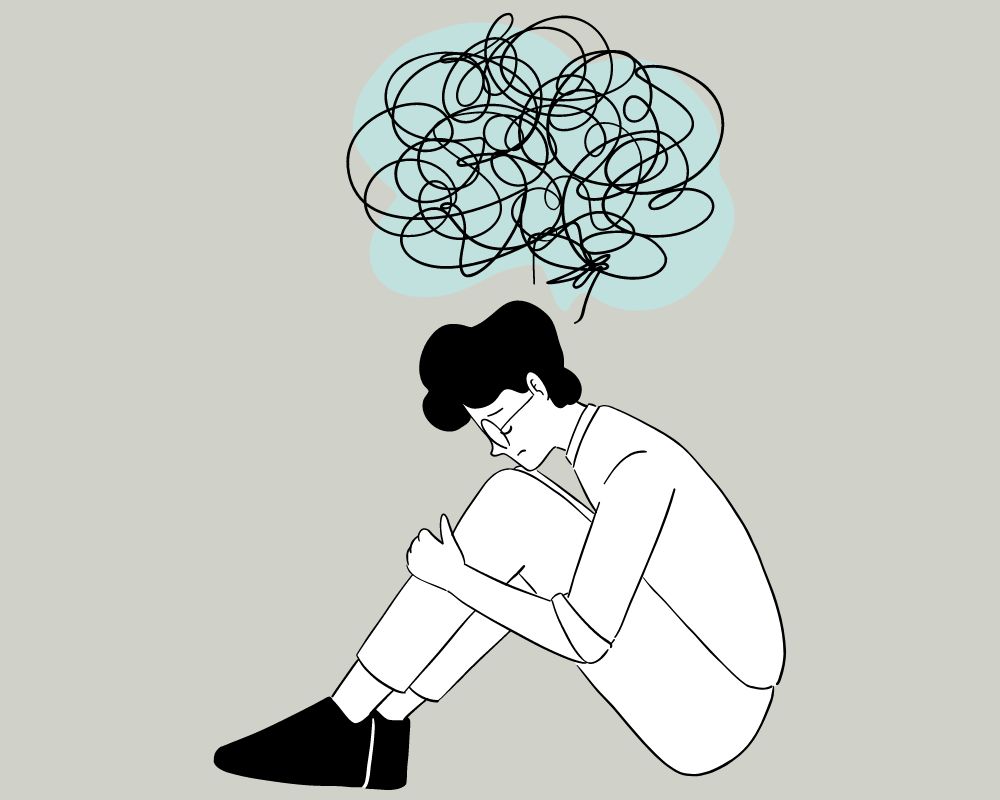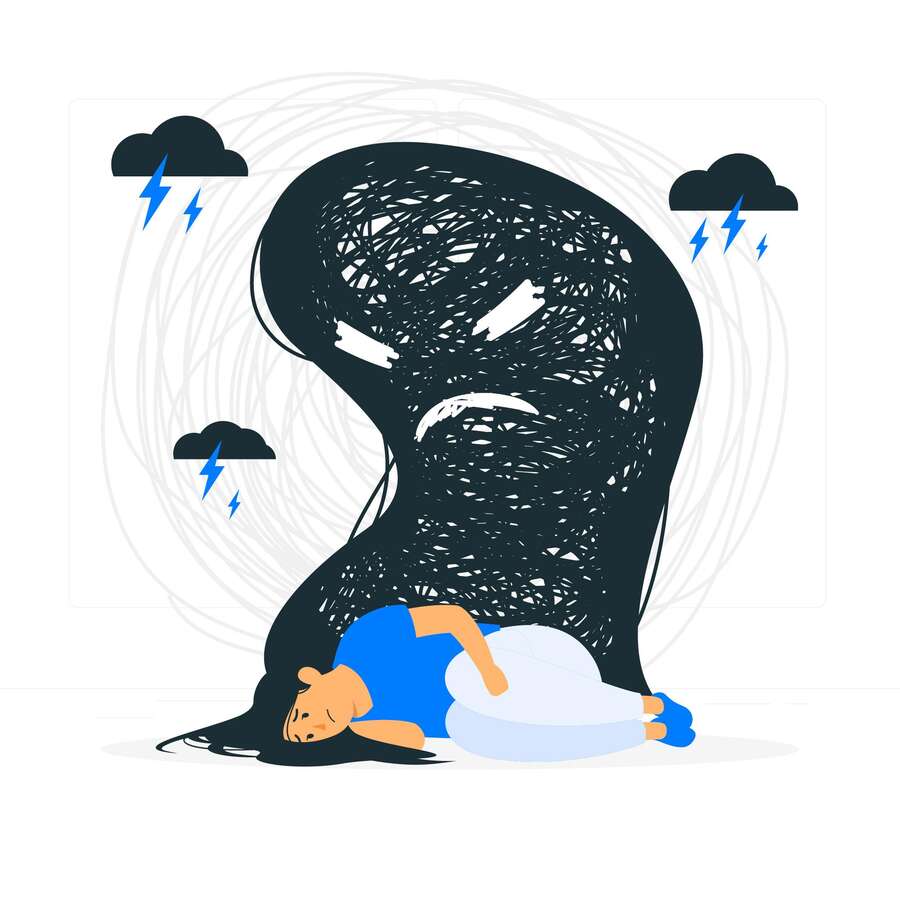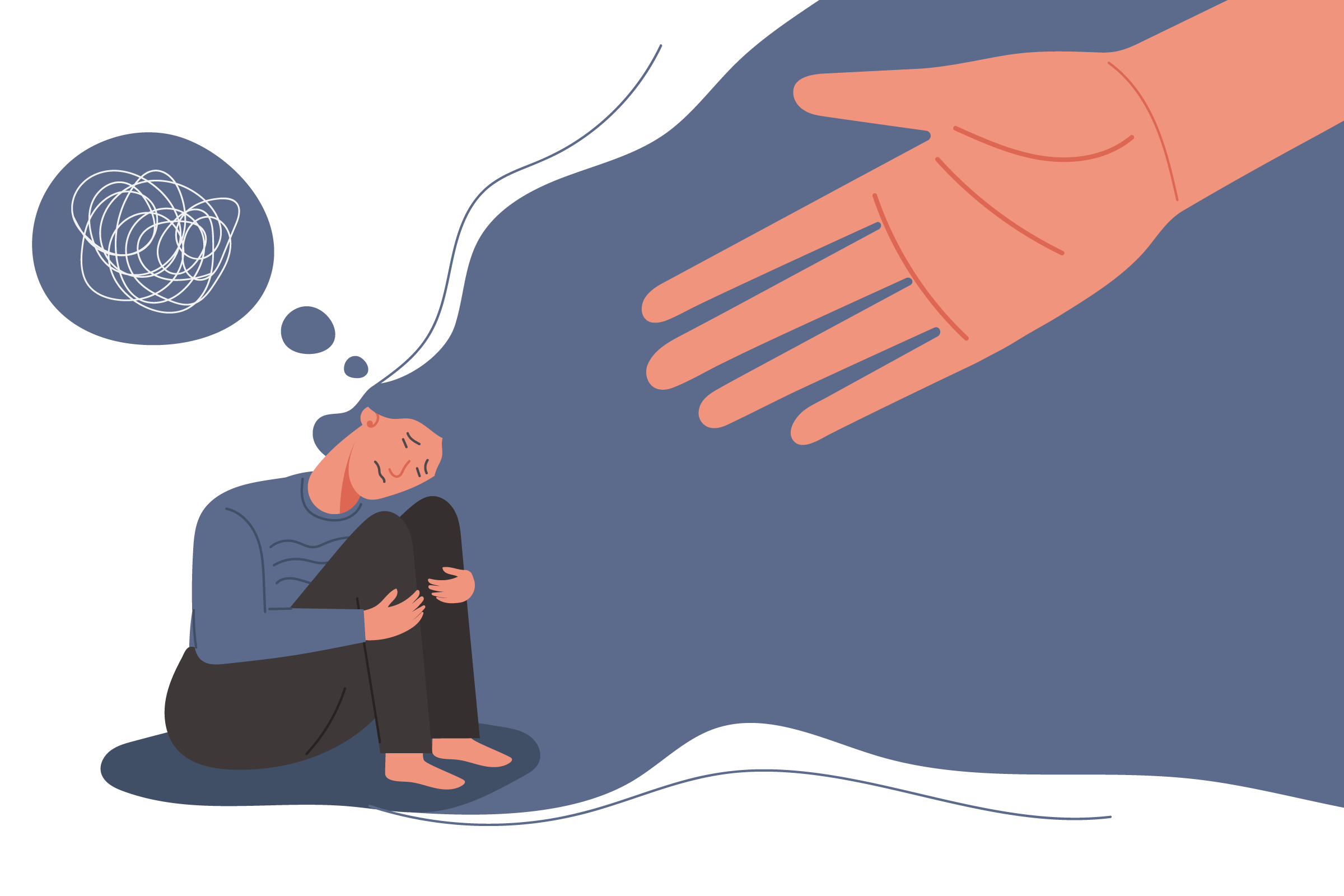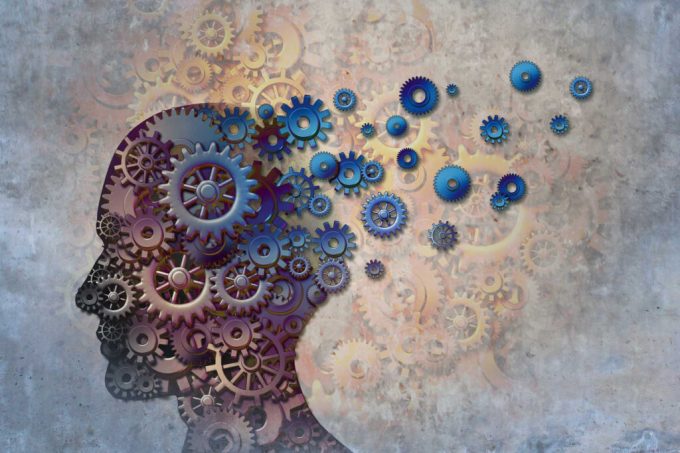What Is Depression

Depression is a mood disorder that causes a persistent feeling of sadness and loss of interest. Also called major depressive disorder or clinical depression, it affects how you feel, think and behave and can lead to a variety of emotional and physical problems. You may have trouble doing normal day-to-day activities, and sometimes you may feel as if life isn’t worth living.
More than just a bout of the blues, depression isn’t a weakness and you can’t simply “snap out” of it. Depression may require long-term treatment. But don’t get discouraged. Most people with depression feel better with medication, psychotherapy or both.
Major life events, such as bereavement or the loss of a job, can triggerTrusted Source depression. But depression is distinct from the negative feelings a person may temporarily have in response to a difficult life event.
Depression often persists in spite of a change of circumstances and causes feelings that are intense, chronic, and not proportional to a person’s circumstances.
It is an ongoing problem, not a passing one. While there are different types of depression, the most common one is major depressive disorder. It consists of episodes during which the symptoms last for at least two weeks.Trusted Source
Depression can last for several weeks, months, or years. For many people, it is a chronic illness that gets better and then relapses.
Causes Of Depression

Researchers don’t know the exact cause of depression. They think that several factors contribute to its development, including:
- Brain chemistry: An imbalance of neurotransmitters, including serotonin and dopamine, contributes to the development of depression.
- Genetics: If you have a first-degree relative (biological parent or sibling) with depression, you’re about three times as likely to develop the condition as the general population. However, you can have depression without a family history of it.
- Stressful life events: Difficult experiences, such as the death of a loved one, trauma, divorce, isolation and lack of support, can trigger depression.
- Medical conditions: Chronic pain and chronic conditions like diabetes can lead to depression.
- Medication: Some medications can cause depression as a side effect. Substance use, including alcohol, can also cause depression or make it worse.
Depression symptoms

Depression can be more than a constant state of sadness or feeling “blue.”
Major depression can cause a variety of symptoms. Some affect your mood and others affect your body. Symptoms may also be ongoing or come and go.
General signs and symptoms
Not everyone with depression will experience the same symptoms. Symptoms can vary in severity, how often they happen, and how long they last.
If you experience some of the following signs and symptomsTrusted Source of depression nearly every day for at least 2 weeks, you may be living with depression:
- feeling sad, anxious, or “empty”
- feeling hopeless, worthless, and pessimistic
- crying a lot
- feeling bothered, annoyed, or angry
- loss of interest in hobbies and interests you once enjoyed
- decreased energy or fatigue
- difficulty concentrating, remembering, or making decisions
- moving or talking more slowly
- difficulty sleeping, early morning awakening, or oversleeping
- appetite or weight changes
- chronic physical pain with no clear cause that does not get better with treatment (headaches, aches or pains, digestive problems, cramps)
- thoughts of death, suicide, self-harm, or suicide attempts
The symptoms of depression can be experienced differently among males, females, teens, and children.
Males may experience symptoms related to their:
- mood, such as anger, aggressiveness, irritability, anxiousness, or restlessness
- emotional well-being, such as feeling empty, sad, or hopeless
- behavior, such as loss of interest, no longer finding pleasure in favorite activities, feeling tired easily, thoughts of suicide, drinking excessively, using drugs, or engaging in high-risk activities
- sexual interest, such as reduced sexual desire or lack of sexual performance
- cognitive abilities, such as inability to concentrate, difficulty completing tasks, or delayed responses during conversations
- sleep patterns, such as insomnia, restless sleep, excessive sleepiness, or not sleeping through the night
- physical well-being, such as fatigue, pains, headache, or digestive problems
Females may experience symptoms related to their:
- mood, such as irritability
- emotional well-being, such as feeling sad or empty, anxious, or hopeless
- behavior, such as loss of interest in activities, withdrawing from social engagements, or thoughts of suicide
- cognitive abilities, such as thinking or talking more slowly
- sleep patterns, such as difficulty sleeping through the night, waking early, or sleeping too much
- physical well-being, such as decreased energy, greater fatigue, changes in appetite, weight changes, aches, pain, headaches, or increased cramps
Children may experience symptomsTrusted Source related to their:
- mood, such as irritability, anger, rapid shifts in mood, or crying
- emotional well-being, such as feelings of incompetence (e.g., “I can’t do anything right”) or despair, crying, or intense sadness
- behavior, such as getting into trouble at school or refusing to go to school, avoiding friends or siblings, thoughts of death or suicide, or self-harm
- cognitive abilities, such as difficulty concentrating, decline in school performance, or changes in grades
- sleep patterns, such as difficulty sleeping or sleeping too much
- physical well-being, such as loss of energy, digestive problems, changes in appetite, or weight loss or gain
How is depression treated?

Treatment for depression may include one or a combination of the following:
- Medicine. Antidepressants work by affecting the brain chemicals. Know that it takes 4 to 8 weeks for these medicines to have a full effect. Keep taking the medicine, even if it doesn’t seem to be working at first. Never stop taking your medicine or change your dose without first talking to your healthcare provider. Some people have to switch medicines or add medicines to get results. Work closely with your healthcare provider to find treatment that works for you.
- Therapy. This is most often cognitive behavioral or interpersonal therapy. It focuses on changing the distorted views you have of yourself and your situation. It also works to improve relationships and identify and manage stressors in your life.
- Electroconvulsive therapy (ECT). This treatment may be used to treat severe, life-threatening depression that has not responded to medicines. A mild electrical current is passed through the brain. This triggers a brief seizure. For unknown reasons, the seizures help restore the normal balance of chemicals in the brain and ease symptoms.
With treatment, you should start to feel better within a few weeks, but it can take longer. Stay connected with your healthcare provider and let them know if you are not starting to feel better. Without treatment, symptoms can last for weeks, months, or even years. Continued treatment may help to prevent depression from appearing again.
Depression can make you feel exhausted, worthless, helpless, and hopeless. It’s important to realize that these negative views are part of the depression and don’t reflect reality. Negative thinking fades as treatment starts to take effect. Meanwhile, consider the following:
- Get help. Being depressed is miserable and impacts all aspects of life, including your relationships and long-term health. If you think you may be depressed, see a healthcare provider as soon as possible.
- Set realistic goals in light of the depression and don’t take on too much.
- Break large tasks into small ones. Set priorities, and do what you can as you can.
- Try to be with other people and confide in someone. It’s usually better than being alone and secretive.
- Do things that make you feel better. Going to a movie, gardening, or taking part in religious, social, or other activities may help. Doing something nice for someone else can also help you feel better.
- Get regular exercise. Studies show exercise can improve mood.
- Expect your mood to get better slowly, not right away. Feeling better takes time.
- Eat healthy, well-balanced meals.
- Stay away from alcohol and drugs. These can often make depression worse.
- It’s best to delay important decisions until the depression has lifted. Before deciding to make a big change—such as changing jobs or getting married or divorced—discuss it with others who know you well and have a more objective view of your situation.
- Remember: People don’t “snap out of” a depression. But they can feel a little better day-by-day.
- Try to be patient and focus on the positives. This may help replace the negative thinking that is part of the depression. The negative thoughts will fade as your depression responds to treatment.
- Let your family and friends help you.














Leave a comment